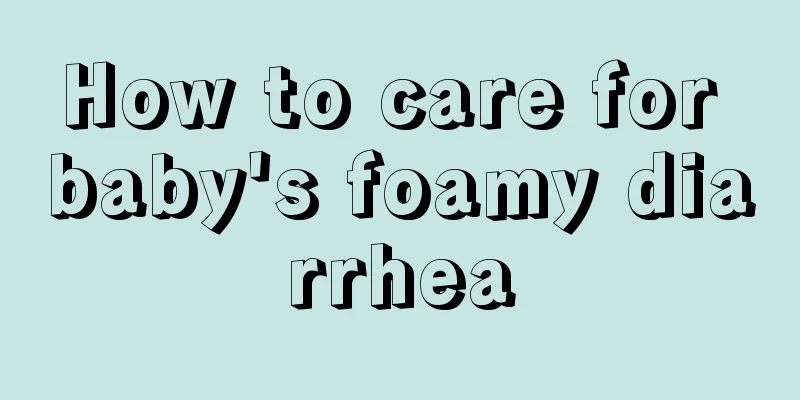What should I do if my baby drools? Teach you a simple way to deal with it

|
It is a normal physiological phenomenon for babies to drool. It is a stage in the baby's development. It will be fine after the baby passes this stage. In addition to physiological phenomena, there are other reasons for baby drooling. If the baby has passed the drooling stage, you need to check it in time. If the baby drools, you must pay attention to maintaining hygiene, otherwise it will hurt the skin and cause skin inflammation. Saliva is corrosive and can cause certain damage to the skin, so keep the skin dry. When the baby drools, it is necessary to wipe it in time. Use a handkerchief, preferably a pure cotton one, which should be changed frequently to keep it clean and hygienic. Below we will talk about the simple treatment methods for baby drooling, so that mothers can get better treatment in time. 1. Find out the reason why your child drools When children are teething, they often drool, so parents should pay more attention. Check to see if your child is teething. 2. Timely processing Saliva is generally corrosive. Some babies have sensitive skin and drool frequently, which can cause eczema at the corners of their mouths. Therefore, parents should pay attention and deal with it in time. 3. Keep your skin dry Parents should pay attention to the fact that after the baby drools, they should wipe it off in time and be gentle when wiping. It is best to prepare a small cotton towel for your child. 4. Nursing methods 1. Wipe promptly: Once the baby starts drooling, wipe it off immediately with a clean towel. Because the baby's skin is relatively tender, you must be careful when wiping it, and it is best to "dip" it. The small towel you choose should also be a soft, absorbent cotton handkerchief. Tip: Used towels should be washed and ironed frequently, and placed in the sun to sterilize. Avoid using scented wipes to avoid irritating your baby's skin. 2. Wash and apply frequently: Wash the areas where saliva flows with warm water frequently, and apply moisturizer or oil to protect the baby's tender skin. 3. Change and dry the baby’s clothes frequently. When the baby drools, the clothes, pillows, bedding, etc. will get wet. Therefore, the baby's clothes should be changed frequently to prevent the growth of bacteria. Pillows, bedding, etc. should also be washed and dried frequently, and dried in the sun to sterilize. 4. Let your baby wear a bib. If you want to reduce the number of times you wash clothes, you might as well let your baby wear a bib to prevent saliva from staining clothes. In fact, mothers can also make simple bibs by themselves! But you must choose soft and absorbent cotton products. Tip: Bibs should be changed and washed frequently to keep them clean and dry. 5. Don’t pinch your baby’s cheeks often. When your baby is drooling, don’t always pinch his chubby cheeks when playing with him. This will stimulate the secretion of the salivary glands and aggravate the baby’s drooling. |
<<: What affects the sleep time of newborn babies?
>>: What should I do if my baby coughs and has eye mucus?
Recommend
White spots on the child's face
Children are the group of people that families an...
How long does it take for a child's sinusitis to heal?
Most children suffer from rhinitis because they d...
What should I do if my child has a lot of yellow eye mucus?
In many cases, it is normal for people to have ey...
What should I do if my child always has pain in one leg?
Human legs are used for walking, but more often t...
Children with amblyopia need early treatment
Amblyopia is a very common disease in daily life,...
Treatment of baby's dry cough without phlegm
A baby's dry cough without sputum can cause s...
Why do children have repeated high fevers?
Children are the apple of every parent's eye ...
Can a 10-year-old drink lemonade?
Lemon is rich in nutrients, especially vitamin C....
The child keeps coughing
Cold symptoms are very common in our daily lives....
What is the cause of a three-year-old child's headache?
Some children often feel headaches. We must pay a...
What is the cause of the child's nails falling off?
In the process of child's body development, i...
What to do if a one-year-old baby has small red bumps on his face
If a one-year-old baby has small red pimples on h...
Treatment for heavy breathing in babies
I don't know if any of us have ever encounter...
What to do if your baby doesn't sleep enough
We all know that babies spend most of their time ...
What calcium tablets can children take to grow taller
It is very important for children to supplement c...









